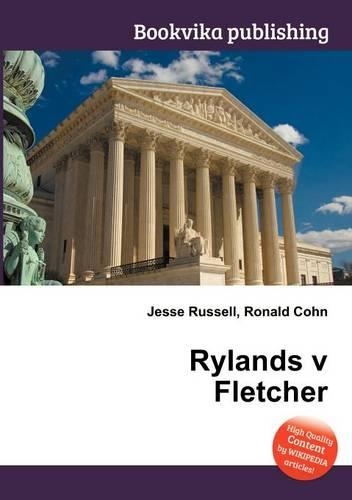
Rylands V Fletcher
Series: English
High Quality Content by WIKIPEDIA articles! Rylands v Fletcher UKHL 1 was a decision by the House of Lords which established a new area of English tort law. Rylands employed contractors to build a reservoir, playing no active role in its construction. When the contractors discovered a series of old coal shafts improperly filled with debris, they chose to continue work rather than properly blocking
NaN
VOLUME
English
Paperback

High Quality Content by WIKIPEDIA articles! Rylands v Fletcher UKHL 1 was a decision by the House of Lords which established a new area of English tort law. Rylands employed contractors to build a reservoir, playing no active role in its construction. When the contractors discovered a series of old coal shafts improperly filled with debris, they chose to continue work rather than properly blocking them up. The result was that on 11 December 1860, shortly after being filled for the first time, Rylands's reservoir burst and flooded a neighbouring mine, run by Fletcher, causing £937 worth of damage. Fletcher brought a claim under negligence, through which the case eventually went to the Exchequer of Pleas. The majority ruled in favour of Rylands; however, Bramwell B, dissenting, argued that the claimant had the right to enjoy his land free of interference from water, and that as a result the defendant was guilty of trespass and the commissioning of a nuisance. Bramwell's argument was affirmed, both by the Court of Exchequer Chamber and the House of Lords, leading to the development of the "Rule in Rylands v Fletcher"; that "the person who for his own purpose brings on his lands and collects and keeps there anything likely to do mischief, if it escapes, must keep it in at his peril, and if he does not do so, is prima facie answerable for all the damage which is the natural consequence of its escape."
Price Comparison [India]
In This Series
Bestseller Manga
Trending NEWS




















